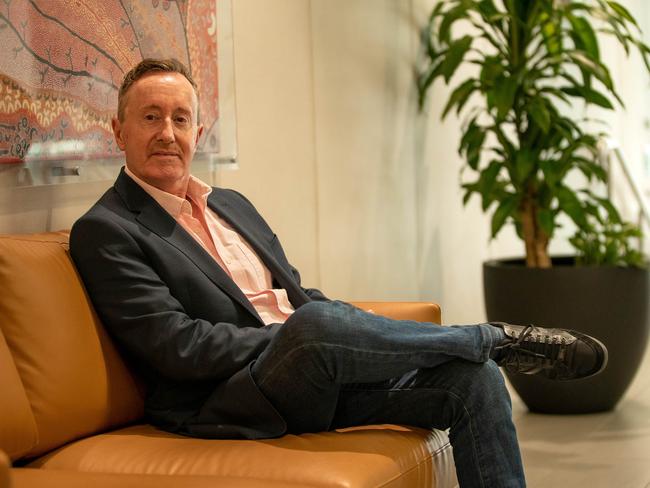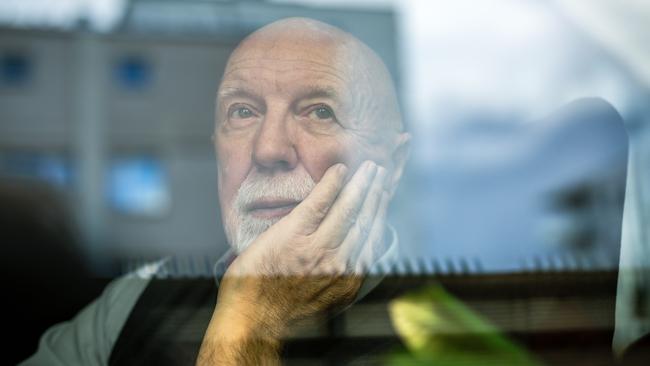The furore over how to treat Alzheimer’s just got a lot more complicated
Amid an international debate about Alzheimer’s treatments, one Australian company thinks it may have unlocked the secret to slowing the disease’s progression.

Is it possible that decades of international research and billions of dollars spent on finding a way to slow or even stop the progression of Alzheimer’s disease have been focused on the wrong target?
Two recent developments have raised this question of profound interest to hundreds of thousands of Australian Alzheimer’s sufferers now and into the future. After the age of 65 the chance of developing Alzheimer’s doubles every five years. By 85 the odds are one in three.
The first development is the publication of a new book, Doctored, by American investigative journalist Charles Piller, which questions the efficacy of key research into the impact of amyloid plaque in the brain on Alzheimer’s, including allegations data has been manipulated.
The second is a new Australian drug that identifies an entirely different target in the brain to slow Alzheimer’s – cortisol.
The Piller book has created an international scientific furore. It tracks the progress of the “amyloid hypothesis”, that an amyloid protein accumulates as plaque in the brain, disrupting its function. The book hones in on a 2006 paper in Nature, in which University of Minnesota researchers claimed to have identified a subtype of an amyloid responsible for memory loss. A dogged pursuit by the journalist uncovers manipulated results, and an eventual retraction of the article.
Piller’s theory is that the pharmaceutical industry has for decades had a voracious financial interest in wanting the amyloid hypothesis to work, and has been aided and abetted by “ruthlessly ambitious scientists”.

He is sceptical of two drugs now on the market in the US, one of which (Leqembi or lecanemab) has recently been rejected by Australia’s drug regulator, the Therapeutic Drug Administration.
“Unfortunately, the Leqembi ‘breakthrough’ amounted to just this: Alzheimer’s patients lost their ability to remember, think clearly, and live normal lives only slightly less rapidly than others taking a bogus treatment,” he writes. “The drug offers so modest a benefit that doctors and patients might not perceive any effect whatsoever. For decades, proponents of the dominant amyloid hypothesis have sidelined, starved for resources, and even bullied rebels behind other promising notions of how to treat Alzheimer’s,” Piller says.
But the book has not gone unchallenged.
US neurologist Dennis Selkoe says Piller’s work highlights a small number of cases of fraudulent or badly executed research among 50 years of work in the area undertaken by thousands of scientists. And the science behind the amyloid hypothesis was sound, he says.
“Administering carefully vetted anti-amyloid antibodies has been shown in thousands of Alzheimer patients in over 30 countries to decrease amyloid plaques, lower the secondary tau build-up, and slow cognitive decline,” Professor Selkoe writes in US health newsletter STAT.
“More than 10 placebo-controlled, ‘blinded’ trials have confirmed these effects,” he adds.
One of Australia’s most eminent Alzheimer’s researchers, Professor Ralph Martins, foundation chair in ageing and Alzheimer’s disease at Edith Cowan University, agrees the amyloid theory is soundly based and any issues around falsified data were likely minor against the broader weight of evidence.
“The proof is in the pudding that anti-amyloid drugs reduce amyloid in the brain. It is the best chance we have so far,” Professor Martins said. “The real question is whether people are getting it too late, but it is definitely a disease-modifying drug.”
Alongside this to and fro, one Australians company has taken a different tack, backing in its newly developed cortisol-targeting drug to be a global game-changer in the future treatment of Alzheimer’s disease.
Steven Gourlay, chief executive of neurotherapeutics developer Actinogen, says the pharmaceutical industry has been “barking up the wrong tree” in pursuing amyloid-targeting drugs.
“For the past 20 to 30 years, the pharmaceutical industry has invested billions of dollars – estimates reach $42bn – in pursuing this idea that amyloid protein can be seen in the brains of those with Alzheimer’s, so let’s zap it and this will do something for sufferers,” he says.
“But the reality is that most attempts to target those proteins have failed. And while there has been some recent progress in terms of amyloid-targeting drugs, the clinical benefits have been modest.

“These treatments, which require frequent intravenous infusions, have demonstrated only a 25 to 30 per cent slowing of cognitive decline, and only for those in the early stages of Alzheimer’s progression. And they carry risks of brain swelling and bleeding,” he says.
Dr Gourlay says his company’s drug, Xanamem (emestedastat), a cortisol inhibitor that is taken daily in pill form, has been shown in early trials to slow cognitive and functional decline in patients with mild Alzheimer’s in just 12 weeks.
“The ‘stress hormone’, cortisol is toxic to brain cells, accelerates inflammation and disrupts memory function, all symptoms of the progression of Alzheimer’s disease. In our placebo-controlled trials, Xanamem has consistently improved working memory, attention and depression symptoms,” he says.
Like Professor Martins, dementia expert Michael Woodward supports the scientific foundation for amyloid treatments for Alzheimer’s, but he recognises that a cortisol-busting drug has a place in the future arsenal of medication for the disease.

Associate Professor Woodward, director of dementia research at the Austin Hospital, says the data around anti-amyloid drugs such as lecanemab is “strong”.
“While the effects are modest, it is a breakthrough as it is the first drug proven to slow down cognitive decline,” he says.
“I liken it to the first years of cancer treatment, when the early drugs were still a bit rough, but over a relatively short time they have really improved survival rates.”
Asked about the side effects of these anti-amyloids, including brain swelling, Professor Woodward says trials overseen in his hospital had shown that across 200 patients only one had any issue with brain swelling, which stopped after the drug regime was halted, and the patient still ended up with better outcomes.
But Professor Woodward also said a cortisol-inhibiting drug such as Xanamem had a place in future Alzheimer’s treatment.
“I don’t think it’s the holy grail, but there’s every chance it will be a significant contribution to the future treatment landscape,” he said.
“The brain has 15 to 20 targets that may help in slowing Alzheimer’s. Excess cortisol is one of those, and there have been effective phase 2 trials to show this drug can be effective.”
Professor Martins agrees. “I think drugs targeting cortisol have promise. In the future, I suspect there will be a suite of complementary drugs used to slow Alzheimer’s, and while amyloid drugs are likely to be a primary treatment this drug could complement it. But it still needs to be validated.”

Larger and longer clinical trials for Xanamem have reached Phase 2b/3 stage, with interim results expected later this year and final results in 2026. The company is hoping for FDA approval in the US and TGA approval in Australia within a few years.
In October last year, the TGA rejected lecanemab for use in Australia in an initial ruling, despite it being approved for use in the UK, US, Japan and other countries. It was also rejected in Europe.
The TGA’s decision was criticised by peak advocacy body Dementia Australia.
“Lecanemab is not a cure and is not for all people with a diagnosis of Alzheimer’s disease,” Dementia Australia chief executive Tanya Buchanan said at the time.
“Like many medicines it also comes with some significant risks,” Professor Buchanan said. “It is, however, widely seen as a historic first step towards reducing the huge impact of Alzheimer’s disease, and for people living with the condition it signified hope.”
Alzheimer’s disease is an incurable physical brain disease – a progressive dementia that results from the gradual degeneration of brain cells. It affects memory, thinking skills, emotions, behaviour and mood.
There are more than 420,000 Australians living with dementia, significantly more women than men, according to Australian Institute of Health and Welfare data. Around 70 per cent of those with dementia have its most common form, Alzheimer’s disease.
The AIHW projects that by 2058 this number will more than double without a treatment breakthrough.





To join the conversation, please log in. Don't have an account? Register
Join the conversation, you are commenting as Logout